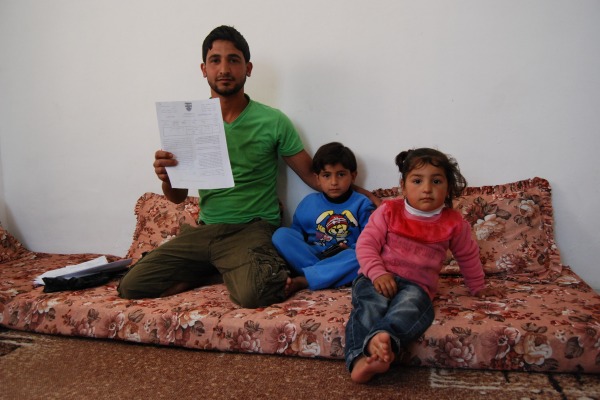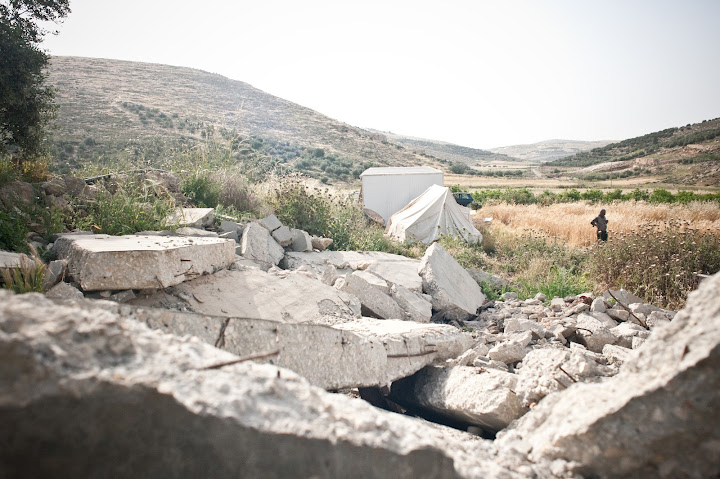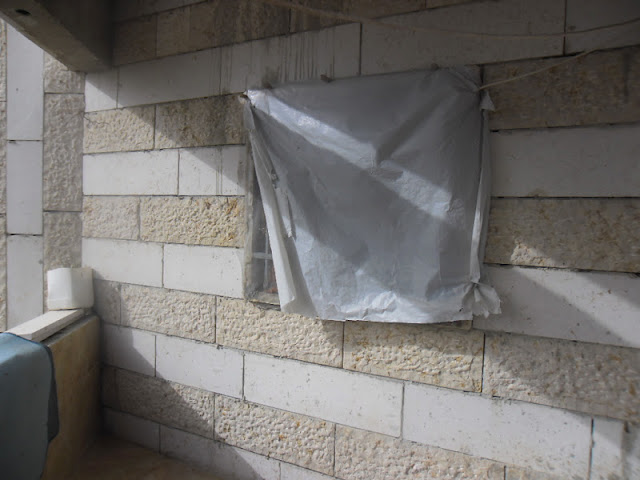Tag: Idhna
-
Young family threatened by house demolition
8th April 2014 | International Solidarity Movement, Khalil Team | Idhna, Occupied Palestine After just three weeks in their new home, the Slemiah family from the village of Idhna have received a demolition order from the Israeli army. The newly built house is on land which has been owned by the family for centuries, and the…
-
Idhna: Family faces a third home demolition by Israel
by Sunny 8 May 2012 | International Solidarity Movement, West Bank On Monday, May 7 in the southern West Bank village of Idhna, Mohamed Temezi was busy working on his caravan home. Israeli Occupation Forces (IOF) arrived unexpectedly and subjected him and his wife Faizah Temezi to a 3 hour ordeal in which they were…
-
Idhna: A family without windows
by Peige 12 March 2012 | International Solidarity Movement, West Bank After three years of marriage Amani and Hussein Batran wanted a house of their own, somewhere to raise their two children, 4 year old Khalil and 3 year old Layali. They took out two loans from the bank and construction began. Now, three years…



